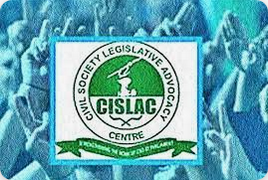Some Civil Society Organisations in Nigeria have challenged journalists in Akwa Ibom State, an Oil Producing part of Nigeria to do more investigations on Environmental, Social and Governance standards of oil companies as well as financial institutions operating in the area.
The CSO’s include the Civil Society Legislative Advocacy Centre, CISLAC, Connected Development, CODE, Steps to Sustainable Transformation and Empowerment Foundation (STEP) and other partners...CLICK TO READ THE FULL NEWS HERE▶▶
They added that investigations into those sectors would not only uncover the rot and opacity therein but would bring about financial transparency and development of the impacted communities in Akwa Ibom.
The CSOs gave the charge over the weekend during a two-day capacity training on fiscal accountability for selected journalists in Uyo, which was sponsored by OXFAM Nigeria in collaboration with Fair Finance International.
The Technical Programme and Communications Specialist of CISLAC, Ayo Omowu, in his remarks, urged journalists to come up with detailed and factual reports that would spur the communities, especially those negatively impacted by the activities of extractive industries to ask questions and demand proper accountability from oil companies regarding the implementation of the Petroleum Industry Act (PIA).
He told journalists to investigate the number of settlers that have established the Host Community Development Trust funds, HCDTF, remitted accurately, the 3% Opex as provided by the PIA to the trust and published the amount that was remitted. He added that journalists should also investigate the activities of the regulatory body, NUPRC in carrying out their oversight functions.
While noting the importance of vibrant press and investigative journalists in achieving such an objective; Omowu said that was what informed the decision of the CSOs to train and equip them with the requisite skills and knowledge on how to effectively report on fiscal accountability in the extractive sector.
He said, “We want journalists that would conduct investigations into the extractive industries, the level of implementation of the PIA to expose some shady deals happening in the system.
“So we feel the need to train them on having the requisite tools for accountability and equity as it concerns host community development trust. We also want to see the level of implementation of oil companies concerning the 3 percent OPEX to host community trust, how much has been remitted so far.”
Also speaking, Abdulazeez A. Hussaini of CODE said it was high time journalists began to ask questions on what, where and how the resources meant for the development of the extractive communities were expended.
He said the Freedom of Information Act empowers the media to probe and ask pertinent questions and so they should maximize the opportunity for the benefit and development of the communities.
Hussaini advised journalists to work in collaboration with the CSOs, whistle-blowers and insider sources to get correct data that would aid them in their investigations and in holding those in authority accountable.
“They can work as a coalition, especially in a situation where someone feels he has a genuine and strong report that his/her medium may not be willing to publish because of seeming interest, or you don’t have a platform you can contact the CSOs. That is the collaboration we are talking about. We want them to focus more on issues that are ESG related as long as finances are concerned from the extractive Industry.” He added.
On his part, Harry Udoh, the Executive Director of STEPS said aside from the extractive sector, journalists should also investigate and write about issues happening within the financial sector to ensure banks are operating within the realms of the ESG. He noted that the level of environmental devastation caused by the activities of the IOCs and the illicit financial flows around the banking sector calls for investigations by journalists.
His words, “Journalists should be able to know the relationship between NUPRC and the settlors, how many host communities have set up their trust and how many of them have started implementing the project, how much has been paid because, without transparency and accountability in the process, we will end up having these monies spent and 20 years down the line the communities remain the same. The NUPRC should be held responsible for oversight to know how much is given to HCDT by the settlers and monitor how the money is spent.”...CLICK TO READ THE FULL NEWS HERE▶▶



